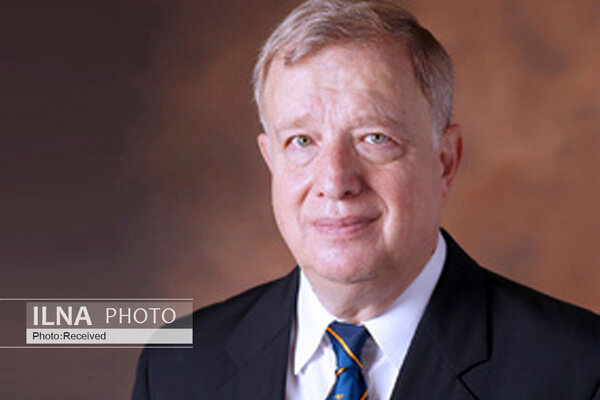TEHRAN - Thomas Alan, a professor at Vanderbilt University, has said that the Iranians are victims of the United States’ sanctions and policies.
In an interview with ILNA published on Saturday, Alan said that the U.S. sanctions have made it difficult for Iran to fight the coronavirus.
“The President of the United States must remove the sanctions for humanitarian reasons,” the professor insisted.
Chris Murphy, the U.S. senator from Connecticut, warned on Monday that the Trump administration could be partially responsible for “the death of innocent people” if it continues its current policies towards Iran amidst the coronavirus epidemic.
“If this epidemic continues to grow and spread in Iran it will…result in the death of innocent people, partially as a result of U.S. policy that does not accrue to the national security benefit of our country,” he told reporters on the Monday conference call, The National Interest reported.
“Remember, if we don’t beat it there, we don’t beat it here. This virus doesn’t respect borders,” he added. “It’s just good public health policy to help even our adversaries beat back this scourge.”
The novel coronavirus disease, also known as COVID-19, hit Iran at a time when U.S.-Iranian tensions were at an all-time high. The Trump administration initially relaxed its “super-maximum economic pressure” campaign in order to allow for humanitarian trade but has refused to budge any further, claiming that the current exemptions are enough. Murphy disagreed.
He had penned a March 26 letter, signed by ten other Democratic senators, asking the Trump administration to ensure that Iran and Venezuela can import medical supplies and other humanitarian goods to deal with the coronavirus outbreak.
Murphy wrote on his Twitter page on April 6 that Iranians are dying of coronavirus partly because of U.S. sanctions.
“Innocent civilians are dying there in part because our sanctions are limiting humanitarian aid during coronavirus,” he tweeted.
Fan Hongda, a professor of international relations at Shanghai International Studies University (SISU), has said that the United States sanctions on Iran violate human rights.
“Iran is fighting the coronavirus and faces shortage in medicine and medical equipment because of the United States’ long term sanctions. This issue has affected the Iranian people’s health seriously,” he told IRNA in an interview published on Thursday.
He added, “Instead of helping the countries to fight the coronavirus, the United States has imposed sanctions on Iran and put pressure on other countries not to help Iran.”
Despite the U.S. pressure, China has not stopped sending aid to Iran, he noted.
Foreign ministers of the European Union have urged suspension of sanctions against countries, including Iran, in the fight against the coronavirus pandemic.
Dane Rowlands, a professor at Carleton University, has said it is “regrettable” that the United States is refusing to ease sanctions on Iran while the country is fighting the deadly virus.
“The United States can reduce restrictions and facilitate Iran’s access to medicine, however, the government of the United States does not prioritize this issue which is regrettable,” Rowlands told ILNA in an interview published on April 6.
He noted that innocent people are losing their lives in Iran due to lack of access to medicine resulting from U.S. sanctions.
On March 31, a UN human rights expert called for lifting international sanctions against countries ranging from Iran to North Korea and Venezuela in coronavirus crisis, according to Reuters.
“The continued imposition of crippling economic sanctions on Syria, Venezuela, Iran, Cuba, and, to a lesser degree, Zimbabwe, to name the most prominent instances, severely undermines the ordinary citizens’ fundamental right to sufficient and adequate food,” Hilal Elver, UN special rapporteur on the right to food, said in a statement.
Elver, an independent expert, said that it was a matter of “humanitarian and practical urgency to lift unilateral economic sanctions immediately”.
In a letter to the G-20 economic powers on March 24, UN Secretary-General Antonio Guterres called for rolling back international sanctions regimes around the world.
Guterres said sanctions are heightening the health risks for millions of people and weakening the global effort to contain the spread of the new coronavirus, Foreign Policy reported.
“I am encouraging the waiving of sanctions imposed on countries to ensure access to food, essential health supplies, and COVID-19 medical support. This is the time for solidarity, not exclusion,” he said.
“Let us remember that we are only as strong as the weakest health system in our interconnected world,” the UN chief said.
Michelle Bachelet, the UN high commissioner for human rights, also said on March 24 that “in a context of global pandemic, impeding medical efforts in one country heightens the risk for all of us.”
“At this crucial time, both for global public health reasons, and to support the rights and lives of millions of people in these countries, sectoral sanctions should be eased or suspended,” she said in a statement.


No comments:
Post a Comment